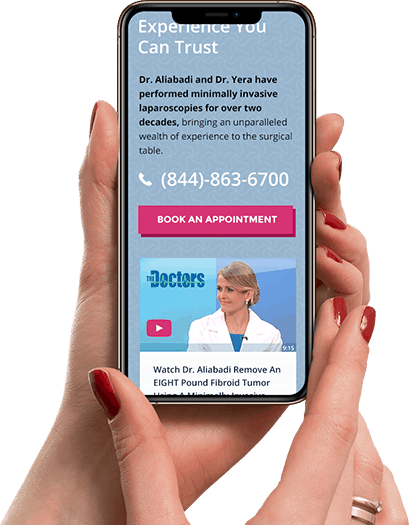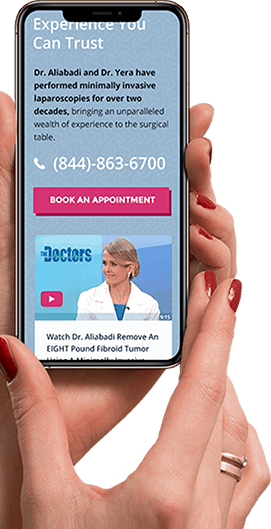You’ve come a long way, baby — unless you are one of the 50% of female patients misdiagnosed after experiencing a heart attack. Doctors, of course, are human and do make mistakes. However, since medicine’s beginning in ancient Greece, some doctors have trivialized women’s illnesses.
Misdiagnosed women sometimes bounce from doctor to doctor, searching for an answer only to find that previous physicians had missed potentially life-threatening diseases.
Did you know that it often takes 10 years for an accurate diagnosis of female-specific diseases such as endometriosis? Or five years for a correct diagnosis of women’s autoimmune disorders?
One study found that women who went to the emergency room (ER) with severe stomach pain had to wait almost 33% longer than men with the same symptoms.

What is the meaning of misdiagnosed?
According to the Britannica Dictionary, a misdiagnosis is an incorrect conclusion about the cause of a disease or problem.
A medical error can cause a delay in treatment, leading to unnecessary pain and suffering. Despite tremendous medical advancements, some doctors misdiagnose women’s health because they may believe she is simply hysterical.
This idea stuck around through the 19th century when many women’s physical and mental health conditions were dismissed as “hysteria” — a word from the Greek word for womb.
The root of women’s misdiagnosis
According to a George Washington University report, women are under-represented in medical research, accounting for less than a third of all subjects in heart disease studies. Twice as many women suffer from depression, yet female animals make up less than half of preclinical studies. Also, a study published in Cancershows that women make up only 38% of cancer trials.
“The disparity of women to men in clinical research has complex roots,” says Reshma Jagsi, M.D., author of the Cancer study. She adds that the desire to protect female fertility plays a role, plus “there’s a deeply rooted concept that the 70kg (154 pounds) white male is ‘normal’ and that women are deviations from that model.”
This dynamic has impactful consequences for women’s health. Noticeable biological differences between men and women often affect how drugs are metabolized. Studies conducted predominantly or exclusively in men make treatment recommendations for women inappropriate.
While there appears to be burgeoning awareness about including women in clinical studies, the bridge across research to in-office action will still be a slow process.

Call 877-760-3564 or click here to schedule online
Three major times women may be misdiagnosed
Doctors often see women as overly sensitive. While a modern doctor won’t outright diagnose you with hysteria, the fact remains that women are often labeled as too emotional.
Misdiagnosis is also exacerbated by conditions that primarily affect women, affect women differently, or have vague, dismissible symptoms.
Sex-specific conditions can be misdiagnosed
Because gynecological conditions can share symptoms, they can be hard to diagnose — or diagnoses can be mixed up. While it’s rare to have endometriosis misdiagnosed as PCOS (polycystic ovary syndrome), PCOS can easily be misdiagnosed as endometriosis.
Nina Elias, a content marketing manager in Bethlehem, PA, was diagnosed with endometriosis after a visit to her doctor’s office because of spotting in between periods and having pain during sex. With those two symptoms and an ultrasound, the OB/GYN misdiagnosed her with endometriosis. He sent Ms. Elias home with only an explanatory pamphlet. Left to figure her condition out for herself, she became depressed and gained 30 pounds.
After a year of worry, Ms. Elias saw another gynecologist who advised her that the first doctor was wrong. Her thyroid was causing the bleeding, and anxiety caused painful sex.
Women with a PCOS diagnosis also have painful experiences with their doctors. A recent Journal of the Endocrine Societystudy found that women with PCOS were less likely to trust their primary-care doctors compared to those who didn’t have the condition.
“There’s a strong hormonal imbalance that causes many different symptoms (weight gain, facial hair, fertility issues), and many doctors just aren’t familiar with the disease,” says Barbara Goff, MD, chair of obstetrics and gynecology at the University of Washington in Seattle.
Delayed diagnosis of gynecological cancers is also common, especially ovarian cancer. “The symptoms of ovarian cancer often mimic those of irritable bowel syndrome or indigestion, or they’re attributed to menopause,” Dr. Goff says.

Misdiagnosing female heart attacks
The classic symptom of a heart event — severe pressure and tightness in the chest — is actually the classic male image of cardiovascular disease.
Common symptoms in women include shortness of breath, pressure in the chest (which could go away and come back), breaking out in a cold sweat, nausea, and exhaustion, which can be confused with other conditions.
Women are aware that doctors are slow to diagnose heart events so they may delay going to the hospital. According to an American College of Cardiology study, women waited an hour on average before calling for help after a heart attack — that hour could be the difference between life and death. A female heart attack can be twice as deadly as breast cancer.
Misdiagnosed autoimmune disease
Autoimmune diseases — such as multiple sclerosis, lupus, rheumatoid arthritis, and thyroid disorders — are more common in women.
Women make up 75% of those living with an autoimmune disease, and it takes an average of five years to get a diagnosis because of gender bias.
Part of the delay is non-gender specific. Symptoms of medical conditions like Crohn’s disease and celiac disease include abdominal pain, bloating, and diarrhea, and symptoms of lupus include fatigue, joint pain, and rashes — which are rather vague.
Doctors may also be wary of establishing a pre-existing condition that may burden patients for insurance reasons.
These explanations suggest why it took Lisa five years to get a celiac disease diagnosis. First, the doctor said she had irritable bowel syndrome. But he treated her pain and anemia separately. When Lisa suggested, she might have celiac disease, he accused her of getting on the gluten-free bandwagon.
Years later, a colonoscopy and endoscopy revealed that she had celiac disease, plus years of digestive tract damage.
What women can do to avoid misdiagnosis
Be clear about how you feel and your expectations. Have confidence. Because they are considered emotional, some women are grossly misdiagnosed as having a mental illness instead of a physical one. An Autoimmune Diseases Association survey showed that almost half of women with an autoimmune disease were first labeled chronic complainers.
Heart attacks in women can look strikingly similar to panic attacks since chest pain, shortness of breath, and sweating could surface in both situations, according to the Anxiety and Depression Association of America.
Here are several steps you can take to decrease your chances of a misdiagnosis:
- Do your research. Find out what information is available regarding the symptoms you are having. Compose questions to ask the doctor before your appointment. Don’t leave the office without having them answered.
- Consider a female physician. A study published in The New England Journal of Medicine found that female primary care physicians spend more time with their patients than male doctors — an average of 2.4 minutes per visit. Some research shows that female doctors often invest more time and education into elements of care like communication and following guidelines. Less than half of the medical school students included in one study felt the curriculum prepared them for gender differences in their clinical practices. Because the female body is “more complex” thanks to the reproductive organs, sometimes a female doctor has a better personal understanding of what you are going through. When a woman’s symptoms are less legible or quantifiable — fatigue, vertigo, chronic pain — the tendency to be dismissive grows; and fall into a term called “unwell women.”
- Get a second opinion. The worst that can happen is that the healthcare provider confirms the initial diagnosis.
Why trust the Outpatient Hysterectomy Center with your diagnosis?
OHC’s Thais Aliabadi, M.D. and Ramon Yera, M.D. are Los Angeles’ only surgical team exclusively dedicated to sparing women from invasive open surgeries that involve extended hospital stays, long painful recoveries, and surgical scars. Women visiting OHC for health problems such as family planning or those requiring surgery receive individual attention, clear communication, compassion, and exceptional skill.
We invite you to establish care with OHC. Please make an appointment online or call us at (844) 863-6700.
The Outpatient Hysterectomy Center is conveniently located for patients throughout Southern California and the Los Angeles area. We are near Beverly Hills, West Hollywood, Santa Monica, West Los Angeles, Culver City, Hollywood, Venice, Marina del Rey, Malibu, Manhattan Beach, and Downtown Los Angeles.
Call 877-760-3564 or click here to schedule online










